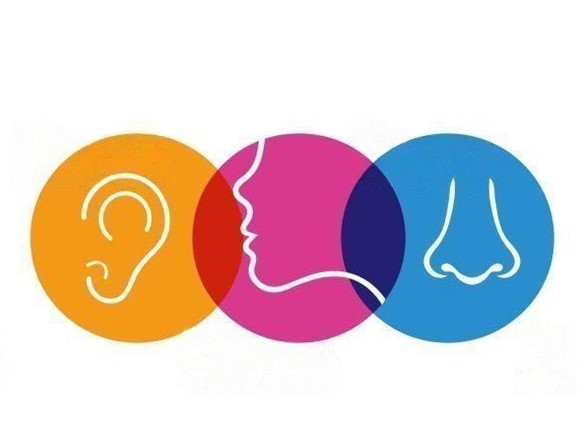
You might not think that your ear, nose, and throat are connected, but they are!
In Singapore, top ENT specialist, or otolaryngologist are the expert in diagnosing and treating conditions related to the ear, nose and throat.
If you are experiencing any problems with these areas, you should make an appointment with an ENT clinic as soon as possible.
Common ENT problems
Here are five of the most common ENT conditions that doctors specialize in:
1. Tonsillitis
Tonsillitis is a condition that causes inflammation of the tonsils. Tonsillitis is most commonly caused by bacteria or viruses, but it can also be caused by allergies or irritating substances such as smoke or dust.
Symptoms of tonsillitis include sore throat, fever, and difficulty swallowing. If you suspect that you have tonsillitis, you should contact an ENT specialist for diagnosis and treatment.
2. Sinusitis
Sinusitis is a condition that causes inflammation of the sinuses. Sinusitis is usually caused by a virus, but it can also be caused by bacteria, allergies, or other irritants.
Symptoms of sinusitis include headaches, facial pain, and nasal congestion. If you suspect that you have sinusitis, you should contact an ENT specialist for diagnosis and treatment.
3. Laryngitis
Laryngitis is an inflammation of the voice box or larynx. The larynx is located at the top of your windpipe (trachea). Laryngitis can be caused by a viral infection such as the common cold or influenza. It can also be caused by overuse of your voice such as from shouting or singing too much. Symptoms of laryngitis include hoarseness, loss of voice, and sore throat.
If you have these symptoms and they last for more than a week, you should see an ENT specialist.
4. Sleep Apnea
Sleep apnea is a condition that causes pauses in breathing during sleep. Sleep apnea can occur when the throat muscles relax too much or when the tongue falls back into the throat and blocks the airway.
Sleep apnea can also be caused by obesity or other health conditions such as heart disease or stroke. Symptoms include snoring, daytime fatigue, and wakefulness during sleep.
If you suspect that you have sleep apnea, you should contact an ENT doctor for diagnosis and treatment.
5. Ear Infections
Ear infections are one of the most common conditions that ENT specialists treat.
Ear infections can occur in both children and adults, but they are more common in young children because their Eustachian tubes are not yet fully developed.
Symptoms of ear infections include pain and fever. If you suspect that you or your child has an ear infection, you should consult a doctor nearest to your home as soon as possible.
Common Causes of ENT Infection

There are several different causes of ENT infection, but the most common are viruses and bacteria. These infections can cause a variety of symptoms, depending on which part of the ear, nose, or throat is infected.
1. Allergies
Allergies are a common cause of ENT problems and infections. Allergies can cause a variety of symptoms, including runny nose, congestion, sneezing, and itchy eyes.
Allergies can also lead to sinus infections, as the mucus produced by the body in response to allergies can trap bacteria in the sinuses and lead to infection.
2. Viruses
Viruses are another common cause of ENT problems and infections. The most common viral infection of the nose is the common cold, which is caused by a virus known as rhinovirus.
Other viruses that can infect the nose and throat include influenza virus, adenovirus, and respiratory syncytial virus (RSV).
3. Bacteria
Bacteria are also a common cause of ENT problems and infections.
The most common bacterial infection of the nose is sinusitis, which is caused by bacteria such as Streptococcus pneumoniae and Haemophilus influenzae.
Other bacterial infections that can affect the nose and throat include pharyngitis (sore throat), tonsillitis, and otitis media (ear infection).
4. Fungi
Fungi are another type of organism that can cause ENT problems and infections. The most common fungal infection of the nose is candidiasis, which is caused by the yeast Candida albicans.
Other types of fungi that can infect the nose and throat include Aspergillus species and Cryptococcus neoformans.
5. Environmental irritants
Environmental irritants such as dust, pollen, smoke, and chemicals can also cause ENT problems and infections.
These irritants can cause inflammation of the nose and throat, which can lead to symptoms such as runny nose, congestion, sneezing, and coughing.
Additionally, environmental irritants can trigger allergies or exacerbate existing allergies, which can also lead to ENT problems and infections.
6. Trauma
Trauma to the head or neck region can also cause ENT problems and infections.
Trauma to the nose or throat can damage the delicate tissues in these areas and make them more susceptible to infection.
Additionally, trauma to the head or neck region can damage nerves or blood vessels in these areas, which can also lead to ENT problems
7. Cold and Flu
The cold and flu are common causes of ENT problems and infections. The symptoms of the cold and flu, such as congestion and runny nose, can lead to sinus infections.
Additionally, the viruses that cause the cold and flu can also infect the ears, causing ear infections.
8. Smoking
Smoking is a common cause of ENT problems and infections. Smoking irritates the nose and throat, which can lead to inflammation and an increased risk of infection.
Additionally, smoking increases the risk of developing cancer of the larynx (voice box) and other parts of the head and neck.
9. Alcohol Abuse
Alcohol abuse is a common cause of ENT problems and infections. Alcohol abuse can damage the lining of the throat, making it more susceptible to infection.
Additionally, alcohol abuse can lead to dehydration, which can also increase the risk of infection.
10. Poor Oral Hygiene
Poor oral hygiene is a common cause of ENT problems and infections. Poor oral hygiene allows bacteria to build up in the mouth, which can lead to gum disease or tooth decay.
Additionally, poor oral hygiene can also lead to bad breath (halitosis).
If you are experiencing any symptoms that suggest you might have an ENT infection, you should contact an ENT specialist as soon as possible for diagnosis and treatment.
Final Thoughts
At the end of the day, managing ENT infections is all about taking proactive measures to prevent them from occurring in the first place.
To that end, it is important to seek regular treatment at an ENT clinic and to take any recommended medications as directed.
Through early detection and proper management, ENT specialists can help you prevent complications and further infections from occurring.
By adhering to these basic guidelines and seeking medical attention at the first sign of infection, you can help keep your ENT system healthy and free of infection. ENT infections are a serious concern that should not be taken lightly.
Your health and well-being are important.